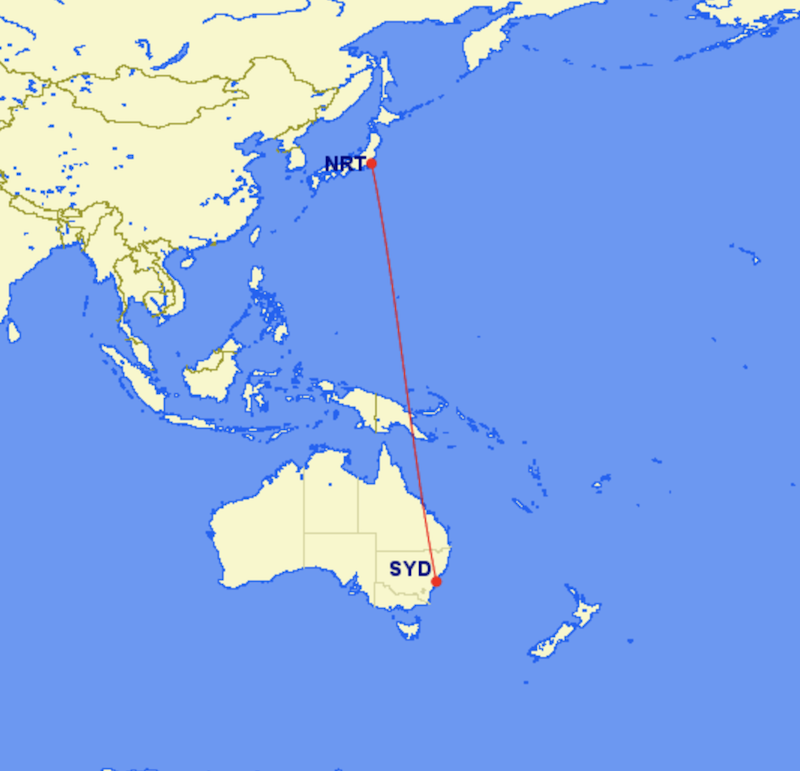Award travel allows you to see more of the world than you probably ever thought you could. And not just that, but it also allows you to do it comfortably, and not to mention in style. But there are many costs that you might not have thought about that can arise with award travel.
This article will go through a lot of the different costs that can arise when you find yourself deep into award travel. These costs are not all monetary but can still have a significant impact on you.
I’ll also discuss how to avoid these costs as you jet-set around the globe.
Interested in finding out the top travel credit cards for this month? Click here to check them out!
1. Increased spending
Studies show that we spend more on cards than we do with cash. It comes down to different factors like the lack of feeling the “pain” of a loss when no cash is handed over for a transaction and other factors like the time between the purchase and payment. But people spend 12-18% more when using credit cards instead of cash.
When you add on the lucrative bonuses categories like 4X on dining and groceries with the Amex Gold Card and the temptation of hitting massive sign-up bonuses, it sometimes becomes even harder to resist spending a little more at times.
I try to limit this temptation by focusing my spend on expenses that I have to make such as rent, utilities, insurance, etc. This allows me to put together a plan to meet my minimum spend requirement so I don’t get caught in a bind and allow myself to put unnecessary spend on my card to meet a bonus.

2. Temporary drop in creditworthiness
When you responsibly open and manage credit cards, over time your credit profile will be more robust and your credit score will go up. But during those times of opening up cards, your score will take hits from new inquiries and new accounts. This can make things like purchasing a vehicle or house an issue since your credit score won’t always be at its optimal level.
The good news is that you can combat this in a couple of ways.
Your average age of accounts (AAOA) will go down but that’s only 15% of your FICO credit score. And within that 15%, your longest open account is the primary factor. So by always keeping your oldest account open you can mitigate the damage.
Also, by opening up business credit cards that don’t report to your personal credit score, you can avoid lowering your AAOA and getting dinged for new accounts.
Getting added as an authorized to another account is another way you could help boost your AAOA but if you’ve opened up many accounts it might not be worth it.
As for hard inquiries, they will only affect your credit score for 12 months and will come off entirely after two years. What’s more, the effect on your score will severely diminish within a few months, often after 90 days or so. So by giving yourself about 6 to 12 months of a break from credit card applications, your score should be in good shape to apply for loans.
Another thing you can do is apply for cards at the same time so that the hard inquiries are combined but this only works with certain banks.
3. Diet
By the time you work your way through a first class lounge, the five-course meal on a first class flight, and then a day at a nice hotel with a complimentary breakfast buffet and wicked executive lounge, you might be get a little off track from your diet… or in my case, completely derailed.
I try to combat this be hitting the gym at hotels as much as possible and trying to be active with lots of walking when traveling. It also helps to eat as much protein as possible with every meal since it is the most satiating micronutrient.
Salmon is easy to find at hotels and even on planes and is often a very healthy way to go when trying to keep yourself in check. Also consider switching sparkling wine for sparkling water.

4. Health
Traveling a lot on points means a lot of exposure to all sorts of bacteria and germs floating around the cabin and growing on every armrest. But beyond catching colds, frequent fliers are also exposed to radiation and those who experience jet lag often can get their hormones severely imbalanced, which can put them at risk for diseases like cancer at the same rate as obese people.
To combat things like catching a cold you can take Vitamin C and Zinc to give your immune system a bit of a boost. Studies have shown that zinc lozenges or syrup can reduce the length of a cold by one day, especially when taken within 24 hours of the first signs and symptoms.
For jet lag, try to space out your travels as much possible to minimize the toll on your health from being jet lag which only really becomes a problem when you experience it multiple times a month over a period of time.
When planning long round the world trips, we often try to route vertically as much as possible during the trip so we can go a few days without getting jet lagged in a new destination. It’s not always practical to do but it’s great when it works out.
We did this heading from South Africa to Dubai and with a two hour difference you hardly even notice the change.
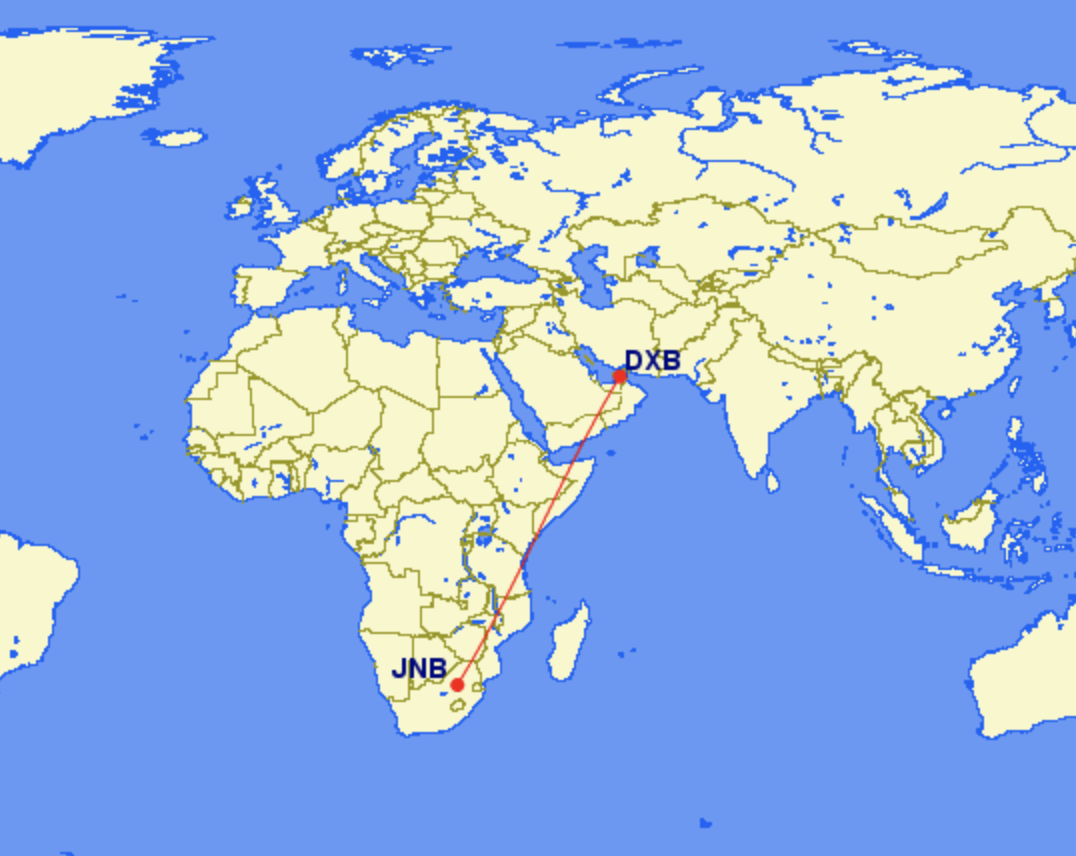
You can find other vertical routes between parts of the world like east Asia and Australia.
The other alternative it to only jump a hand full of time zones per trip during an around the world trip. Always remember our bodies will usually adjust to a new time zone at the rate of one or two time zones per day. And flying east is usually worse for jet lag than flying west.
5. Transportation
Getting to and from the airport and getting around the cities you’re visiting can force you to drop wads of cash. Public transport systems are the way to save money but can be impractical if you have tons of luggage.
If that’s the case, look into shuttle busses that run from the airports or “Airport Express” trains which can be reasonably priced. Uber is in a lot of countries and while I think the company has been crap for a while, they can still be cheap.
Also, make sure to avoid those poachers who hang out at airports and train stations in big cites like Paris, Milan, etc. who will try to charge you 3X the price of the normal transport. A quick Google search is all you need to call them out on their BS.
If you’re going to be in a city for more than a day or two, look into getting a pass for their public transport system. Some cities like Tokyo even allow the left over balance on your pass to be refunded when you leave, so you don’t have to worry about wasted funds.
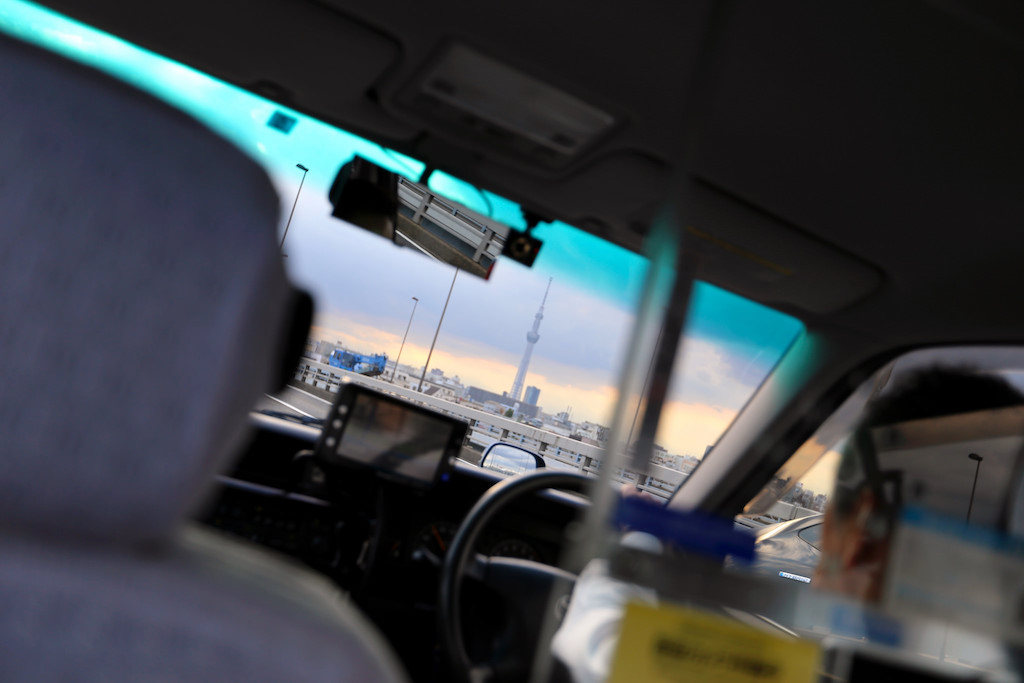
6. Fraud prevention
With so many cards opened, you’ll need to actively monitor your credit card statements to make sure you’re not getting hit with any unauthorized charges. If you have 20+ cards issued that’s a problem. Also, by creating accounts with so many banks, loyalty programs, and apps, you probably increase your odds of your data getting stolen.
I cut down on the time needed to monitor credit card statements by limiting my spending to only a few cards. That way, if I see anything other than $0 on my balance for other cards, I know something is up.
7. Your time
Learning the ins and out of credit cards and award travel is very time-consuming. You’ll need to spend time researching and then staying up to date. You’ll also have to spend hours on the phone working with (sometimes incompetent) phone agents for various things and a lot of time searching for open awards and how to use your points.
Utilizing travel hacking tools can help you more efficiently review award charts and find open awards. Also, call center wait times are 70% shorter before noon, so I always call customer service first thing in the morning when they open up. I also always opt to be called back rather than waiting on hold since there’s nothing worse than listening to hold music for 40+ minutes.
8. Frustration
I’ve always felt like getting into award travel was like getting into a sport.
The teams are the likes of Chase, Amex, Citi, Barclays, etc. and not to mention all of the many airlines and hotels. And in this sport, you’re rooting for all teams to win at all times so when negative changes are implemented, it can hit you like a loss to your favorite sports team, especially when they’re targeting the shenanigans you were up to.
You can avoid a lot of disappointment by earning and burning, as you’ll be less likely to get burned by a devaluation. If you have to save your points, bank them in a flexible currency or in an airline that just recently had a devaluation (unless it’s Delta).
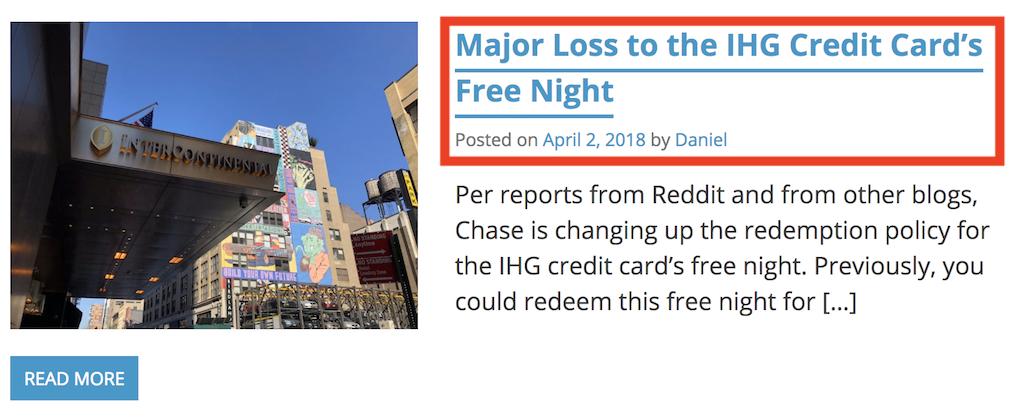
9. Stress
The stress from award travel is related to the frustration but I’m thinking more about the stress that comes with travel. Things like losing passports, wallets, immigration issues, rental car accidents, lost luggage, getting locked up abroad, the list goes on. All of these stressors can appear more often as you do more traveling due to award travel.
Using a card that offers protections like primary rental car coverage and baggage delay and trip delay protections certainly helps alleviate the stress from the unexpected. You can also opt to get GPS trackers for your passports, luggage, etc. that can give you some piece of mind.
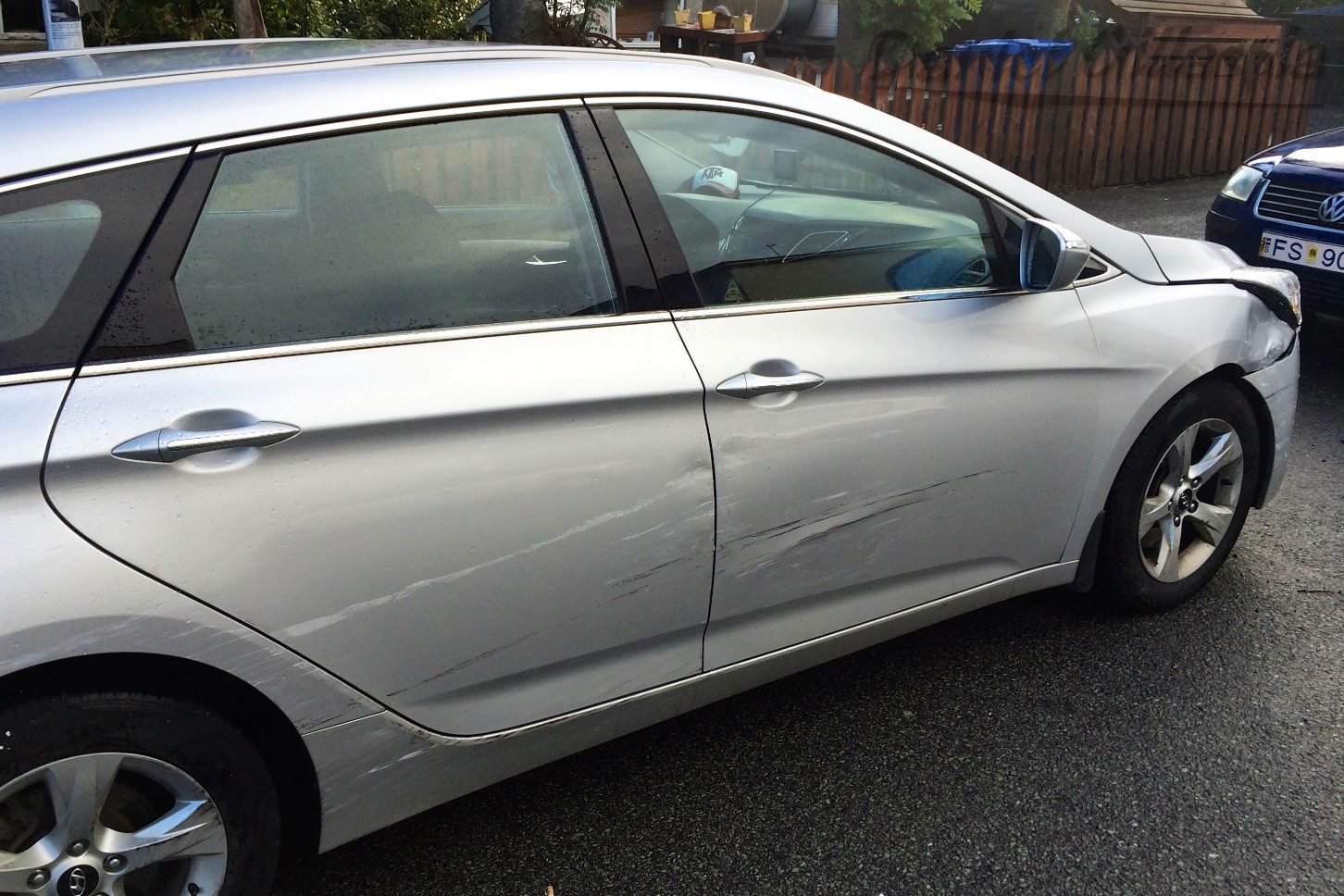
10. Dining
When staying at a nice five-star hotel, you’re going to be very tempted to try out their restaurants which are likely going to be very expensive. This is especially true if you don’t have lounge access or a complimentary breakfast.
We usually dedicate a splurge here and there so that we keep dining expenses under control. It’s easier to turn down a nice dining opportunity when you already have one scheduled elsewhere. For example, we recently decided to pass on eating at the restaurants at the Ritz-Carlton Hong Kong on a big trip because we had decided to splurge at the Conrad Maldives undersea restaurant.
If we’re eating at a hotel, it’s often a little room service + food from the lounge which is more than adequate to get us by without spending too much.
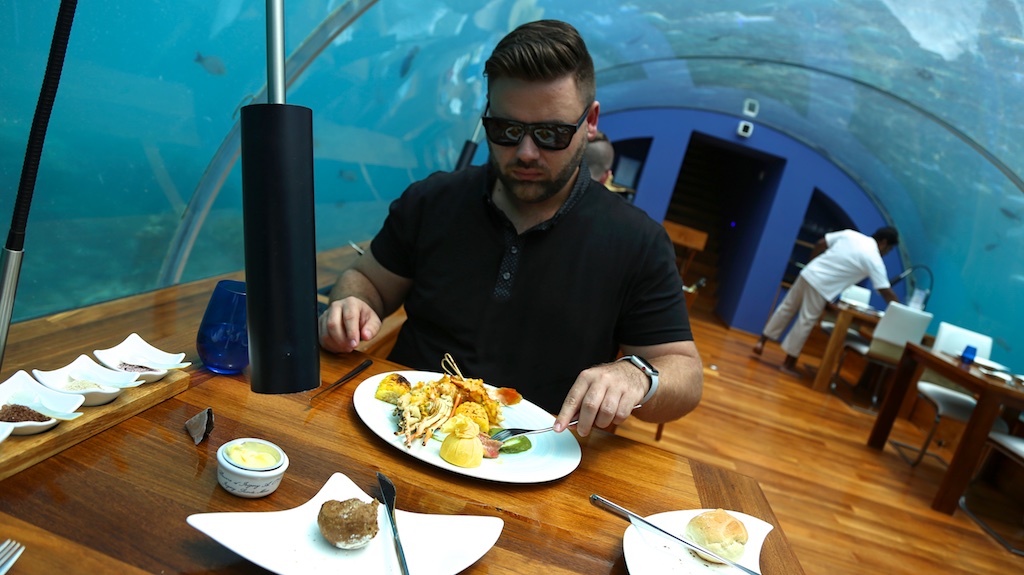
11. Wear and tear
I have a new goal I’m working on: breaking a piece of expensive camera equipment on almost every continent (I’m almost there).
It seems that I take great care of my stuff until I start traveling then all bets are off. I’ve definitely racked up some damage to a lot of my nice camera gear that wouldn’t have happened if I had just stayed my butt on the recliner at home.
I’ve found that I need to do a better job of protecting my belongings when packing and to work on not being careless when taking things in and out of my bags. I’ve also learned you can’t always trust hotels to not break your stuff.
Something to consider is to purchase your prized items shortly before your trip so you can take advantage of purchase protection. For example, the Chase Sapphire Reserve purchase protection covers your new purchases for 120 days against damage or theft up to $10,000 per claim and $50,000 per year.
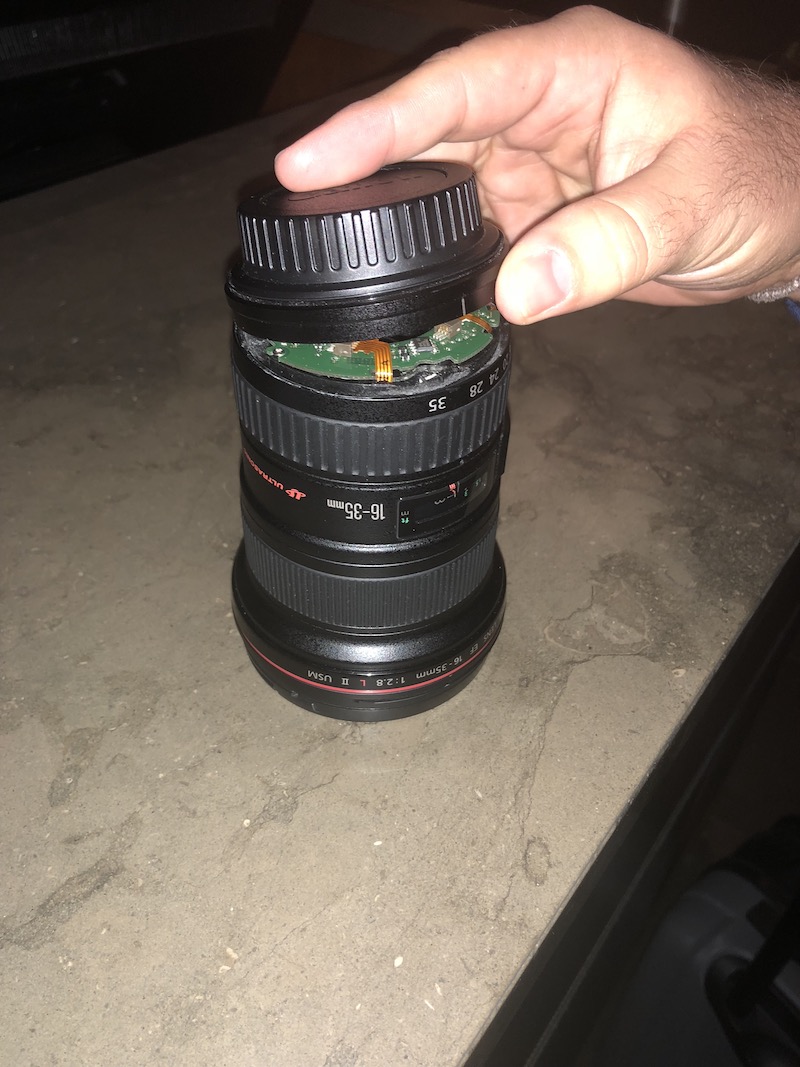
12. Annual fees
Annual fees can be hidden in a couple of ways.
First, it can be easy to forget about them if they are waived the first year. Before you know it, 12 months goes by and you’re getting bombarded with $95 fees left and right. This is why it’s also crucial to have an exit strategy when you apply for a card, whether that be a plan for a retention offer, waived fee, downgrade, cancellation, etc.
Annual fees can also be hidden in that they can seem less than they are because you have “travel credits.” Some travel credits can even make you worse off. I think some people get swept away by these credits and don’t realize that they might not truly be saving money. The result is a lot of annual fees that the person otherwise would not be paying.
13. First class lust
Once you’ve experienced the amazing first class life, it’s hard to settle for anything less. So you’ll end up spending more points in the future, trying to do what you can to avoid settling for economy.
My advice: embrace your inner-peasant and don’t forget about your roots. If you want to take the sting out of economy a little, upgrade to economy plus/premium economy or fly Southwest where everyone is in cattle class together.
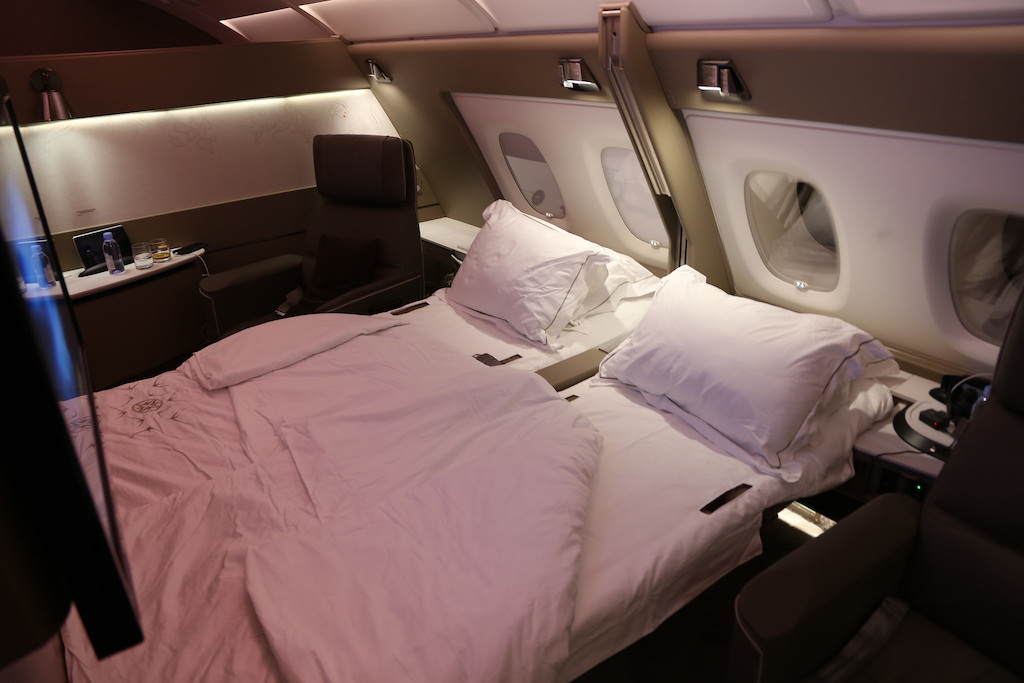
14. Disconnect from reality
When flying first class, spending time in amazing lounges, and relaxing in five-star hotels, it can be easy to get disconnected from the reality of the location you’re visiting since you’re stuck in your own little luxury travel bubble.
My solution is to book cultural experiences that force me to get out and learn or try things. On a recent trip we spent a lot of time inside the hotel at the Ritz-Carlton Hong Kong but we booked a food tour that immediately took us to a part of Hong Kong that wasn’t so ritzy.
In Cape Town, we did a cultural tour and learned about apartheid while visiting historic sites where protests took place. These are the type of experiences that give you a concentrated dose of culture that will be sure to take you out of your bubble.

15. Destinations
Once you get hooked on business and first class, you may want to try out all of the different products available.
But this can cause you to start planning travels based on aircraft and airlines and not on your true preference for locations. It’s not necessarily a bad thing and the ultimate first world problem but it can lead you to visit places that aren’t #1 on your list.
For example, we’ve now been to a few cities like London and Paris a few times. I would’ve gladly traded those visits to places I haven’t visited like Budapest or Athens, but that’s now how the routing worked.
As a blogger my job is to review airlines and hotels so it’s understandable that I’d “fall victim” to this but even if I wasn’t blogging, I’d still be tempted.
One thing you can do to get over this is to try to knock out as many of your top cabins as possible in a few extravagant trips. After that, you might be fulfilled enough to not be so pre-occupied with trying out the top cabins but you might also get hooked even worse….
Not sure about the cure for this one.
16. Relationships
This one hits pretty close to home. When you’re traveling a lot and taking long trips that are planned several months or a year in advance, you’re going to miss special events. I’ve had to miss weddings, family trips, and many small events because we’d already booked travel or were abroad during that time.
Sometimes this has even caused some friction with some of my relationships. I don’t think it helps that people don’t realize that travel blogging is actually a real job and you’re not just trying to ditch everyone to enjoy a vacation.
I suggest always trying to let people know about your travel dates. They might still not plan their lives around you but at least you tried to let them know. Also, utilize FaceTime and social media to reconnect with these people to let them know you’re thinking about them or even buy them a little something while on your trip — you’ll be surprised how much it means to them.
17. Resort fees
Resort fees are the worst but they can hit you by surprise. I recommend that you checkout ResortFeeChecker to check for resort fees at various hotels so you’ll know what to expect.
You can get around these sometimes by simply requesting them to be waived (especially if you didn’t partake in what they were allegedly charging you for). You can also often avoid them by booking award stays or by having certain types of elite status, such as Hyatt Globalist.
Note that you often have to pay resort fees when you book with cash and points.
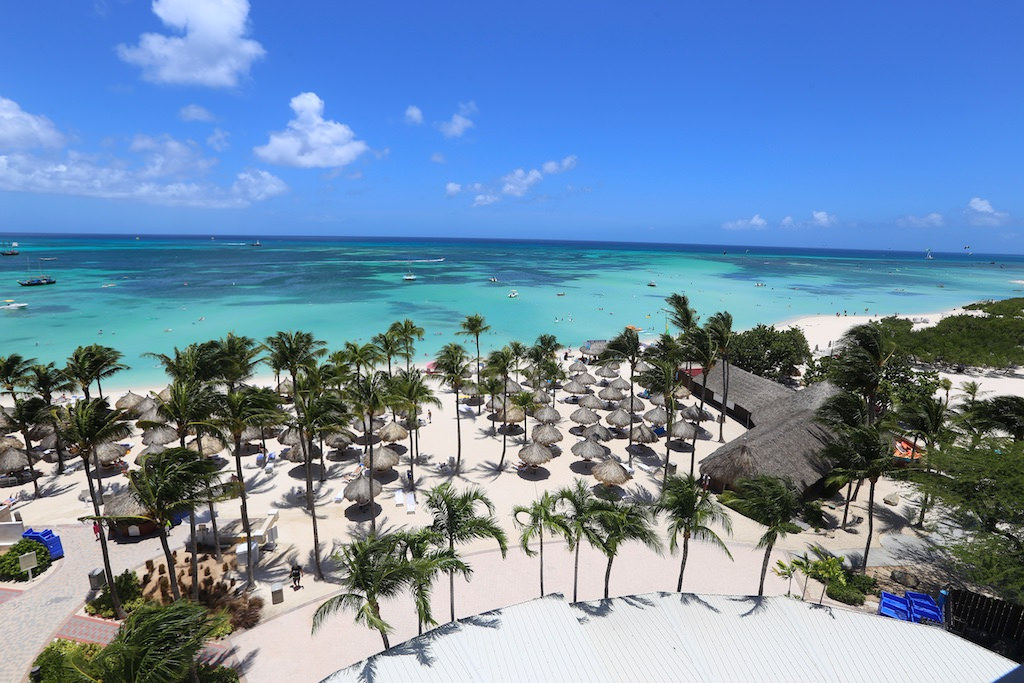
18. Currency fees
Having to pull out currency can cause you to get hit with interchange fees and over time those can add up.
First, make sure you have a credit card with no foreign transaction fees so you can avoid the ~3% charge.
Second, try to avoid exchange kiosks at airports which use less favorable exchange rates compared to banks and ATMs.
Also, look into banking programs that allow you to pull out money free of charge when abroad and who will reimburse you for your fees. Chase Private Client is a good example of this but there are other programs like a Schwab Bank High Yield Investor Checking account that do the same.
Finally, always pay with the local currency to save on the exchange rates (avoid dynamic currency conversion).

19. Close-in fees
Close-in fees are fees tacked on to last-minute award bookings (usually bookings made within three weeks of departure).
You can always try the trick of scheduling the flight a couple of months in advance and then changing the date to the closer departure date within the close-in fee time period but more airlines like United seem to be catching on to this trick so it’s YMMV.
Another solution is to use partners to book awards. You can try Aeroplan, Singapore, or Avianca to book United flights or try British Airways Avios for American flights to try to limit or get around these fees. Also, consider using travel portals like the Chase Travel Portal to book your last minute award flights.
Also, if you have elite status, these fees will be reduced or waived.
20. Surcharges/fees
Many don’t realize how much they’ll be paying in surcharges until they go to book and then are stunned by the amount. Try to focus on programs that don’t pass on surcharges and be aware that the surcharges can depend on which airline you’re flying on.
You can also sometimes avoid them by just switching up the direction of your travel. For example, Delta would charge about $6 to fly from LAX to LHR but flying LHR to LAX would be about $570 USD.
You might also consider routing your flight through another city to decrease the surcharges. I used AA miles to book British Airways first class routing from Oslo via LHR to IAH and the fees were $270. Meanwhile, the fees for a first class flight from LHR to IAH are $515.
21. Cancellation/change fees
Try to put awards on hold first if possible and for as long as possible so that you want wait until you’re certain you need to cancel.
Also, some airlines like American airlines will allow you to change your booking for free if the locations stay the same. So instead of cancelling an AA flight that you know you’re going to take, just change the date to some time way out in the future until you set your new dates.
Final word
These are all different costs that might affect you as you get more into award travel. But by being aware of them upfront, you should be able to be a bit proactive and mitigate the damage from these costs.
Daniel Gillaspia is the Founder of UponArriving.com and the credit card app, WalletFlo. He is a former attorney turned travel expert covering destinations along with TSA, airline, and hotel policies. Since 2014, his content has been featured in publications such as National Geographic, Smithsonian Magazine, and CNBC. Read my bio.


